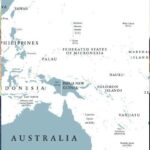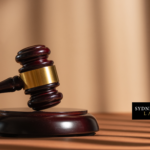Albanese Needs to Clean Up Our Nation’s Resident Deportation Regime

Leah Porter took her own life in Sydney’s Villawood Immigration Detention Centre on 22 May: a day after the Albanese government was voted into power.
The 53-year-old mother-of-two from Christchurch had been in the centre for five months awaiting deportation on character grounds.
In late 2014, then immigration minister Scott Morrison oversaw the passing of laws, which toughened the character grounds test in section 501 of the Migration Act 1958 (Cth). This has resulted in the annual deportation of around 1,000 noncitizens, including many long-term residents.
After spending 12 months in prison, ABF officials met Porter on release on 4 January and placed her in the Serco-run detention centre. The woman, who had lived in Australia for over a decade, had mental health issues that were exacerbated by the late provision of her medication on a daily basis.
Two days before being elected PM, Albanese was asked about the deportation program and he implied the enhanced regime should remain, but there are suggestions that Labor will amend the laws so they don’t overly target New Zealand residents, which is what they’ve done since 2015.
Serco guards raided Porter’s room just hours before she suicided to confiscate a stray cat she’d adopted whilst in immigration detention. Hers is just one life amongst thousands that our nation’s deportation regime has destroyed and, at present, will continue to do so.
The national interest
“Section 501 applies for breaches of people who are on visas,” Albanese told reporters at a doorstop in Sydney’s West Ryde on 19 May. “And if people commit serious offences, then action should be taken in Australia’s national interests.”
Yet, this explanation is more of the same bipartisan tough on borders rhetoric that doesn’t give a clear picture of what’s actually been happening in terms of character ground deportations over the last 7 years.
Albanese simply raised the crime fear factor to dismiss any need for change.
The Abbott government’s 2014 amendments lowered the threshold in relation to when noncitizens automatically have their visas cancelled due to having been sentenced to prison. The limit dropped from 24 months’ worth of sentencing to at least 12 months.
This means that many long-term residents have been deported over multiple minor offences, after having served their time. And the law further applies to suspended sentences, those served concurrently, and time sentenced to residential drug rehabilitation or mental health facilities.
So, the idea that deportees are only serious offenders is a falsehood, as people are being deported over drug and driving offences. And the fact that long-term residents are being turfed out raises questions about the length of time it takes for a country to bear responsibility for those living there.
Fractured relations
“Action should be taken in Australia’s national interest,” the new PM continued, as he confirmed his commitment to the deportation regime. “But can I say… that Jacinda Ardern is someone who I’ve met with…. I’m sure that we would have a very warm and cordial relationship.”
Australia has deported over 2,300 New Zealand-born residents across the Tasman, despite many having lived their whole lives, or long periods of them, over here. And this has destroyed families and communities, as well as put a major strain upon the relationship with our closest neighbour.
When the new 501 laws were enacted in December 2014, Kiwis weren’t listed as one of the top nine nationalities in immigration detention. By December 2015, they were the second largest cohort inside, and by December 2016, New Zealanders were number one on the list.
Since then, Kiwis have ranked as the largest group in onshore Australian immigration detention the majority of the time. And in February this year, there were 300 New Zealanders inside, including Porter, which was by far the largest nationality represented, more than doubling any other.
Ardern has consistently raised issue with the arrangement, which she framed to Morrison as our nation deporting our own people and problems to her country, which has had to set up support networks for deportees, some of whom have no real connection to NZ whatsoever.
Enhancing the regime
The Guardian stated on the day prior to the election that it understands Labor will continue with the regime but reform it so that the period a potential deportee has resided here be taken into account, along with the special immigration status that Kiwis have long had here.
However, tweaking the rules of the Australian deportation regime so that we stop deporting noncitizens to our closest English-speaking majority European neighbouring country will simply result in the nation being one that casts out people of colour as per its refugee regime.
Indeed, the Morrison government was in the midst of its second attempt at passing a set of laws designed to strengthen the deportation regime even further, which Labor facilitated the passage of in the lower house in mid-February.
The new laws seek to provide the minister with discretionary powers to cancel the visas of noncitizens convicted of “designated offences” regardless of the length of sentences applied.
“Designated offences” are defined as crimes that carry a maximum of two years prison time, and involve violence or the threat of it, non-consensual sexual acts, breaches of court protection orders, offences involving a weapon or the procuring of or assisting with such crimes.
Labor had planned to amend these laws in the Senate to remove their retrospective application, as well as their impact on Kiwis.
These potential discretionary powers would sit alongside those set out in section 116 of the Migration Act, which include a provision to deport individuals whose presence “is or may be, or would or might be, a risk to the health, safety or good order of the Australian community”.
As deportee support group Route 501 founder Filipa Payne told Sydney Criminal Lawyers early last year, the section 116 laws have increasingly been used over recent years, with people having been deported who’ve never been convicted of a crime.
The potential to soften
The swing away from the major parties at the ballot box on 21 May has been interpreted as a rejection of government climate inaction and corruption, but it’s also been understood as a constituency that’s sick of having constant rights abuses being purportedly carried out in its name.
The toughening of the noncitizen deportation regime has flown under the radar for many years, as it was overshadowed by our nation’s mistreatment of refugees and asylum seekers, and any questions could be swiftly cast away by raising the point that most deportees have broken the law in the past.
But the human rights abuses currently being perpetrated against the 501 deportees on Christmas Island, along with cases like Porter’s suicide, are starting to raise questions amongst the broader community as to the morality of casting out certain humans and why it’s in the national interest.
So, while a change of governance to a party that’s promising a more humane approach to the way the country operates is welcomed, it’s yet to be seen whether the Migration Amendment Bill 2022 that Albanese delivers in the coming months actually eases the hardline deportation approach.







